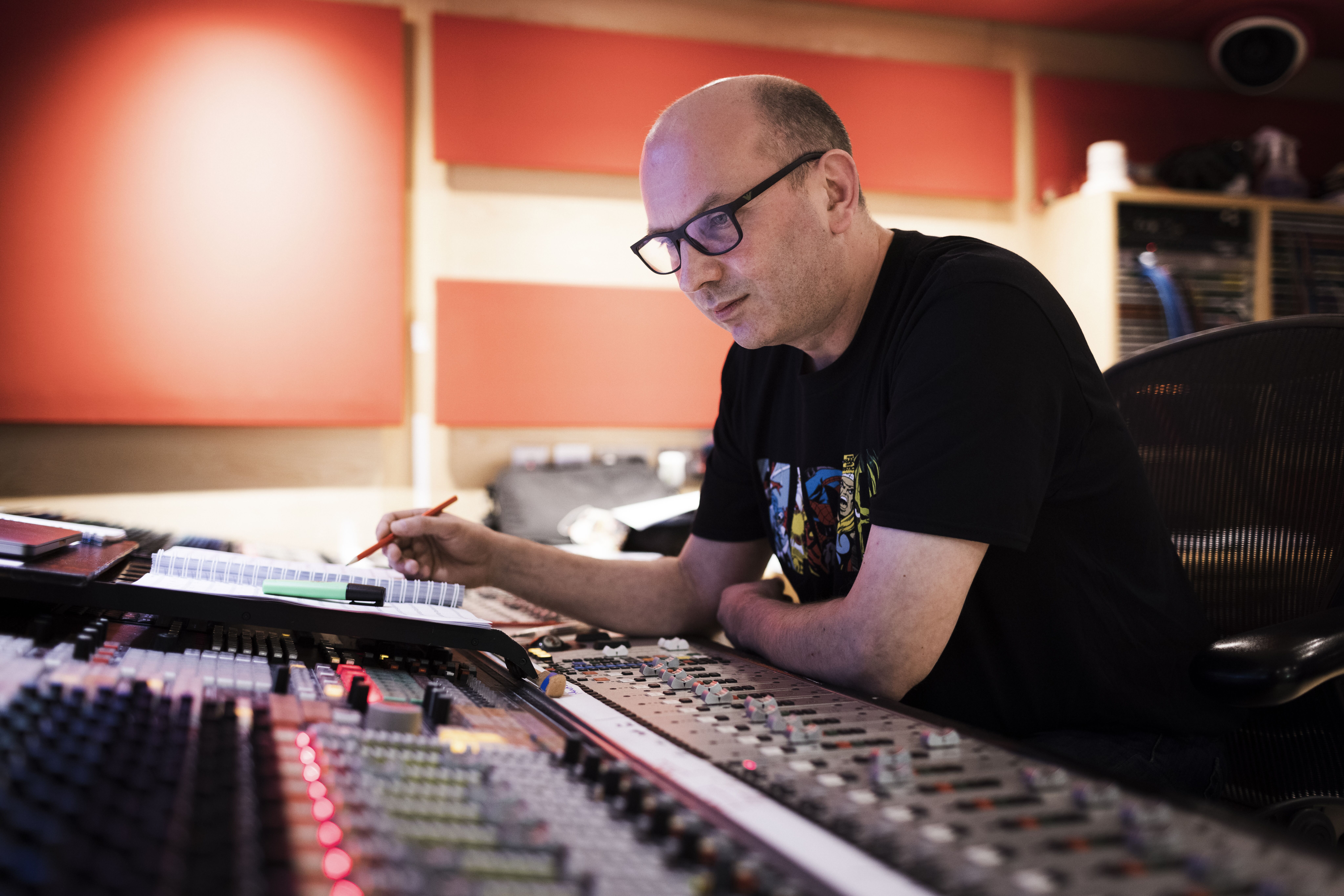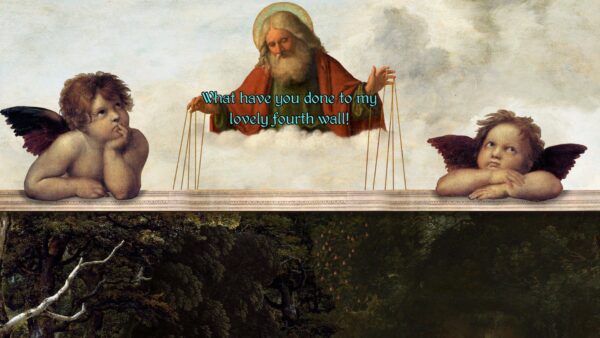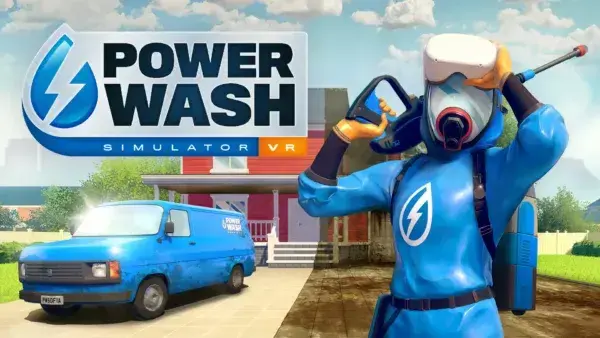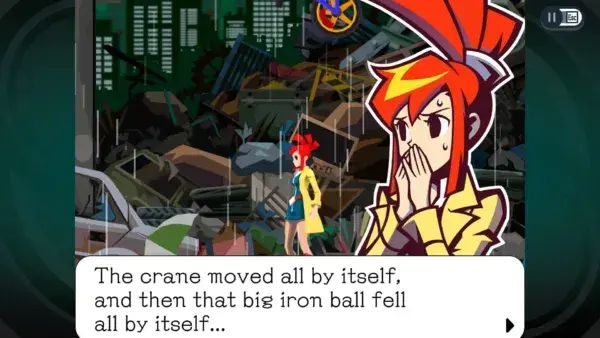
British composer Richard Jacques has sound-tracked some of gaming’s biggest franchises, including Guardians of the Galaxy. We caught up with him to chat about his body of work.
It’s not unheard of for a composer to spend several years on one project, but the last few years have been anything but normal, least of all for Richard Jacques. Perhaps best known for his work on the likes of James Bond 007: Blood Stone and Mass Effect, the past four years have seen Jacques focusing pretty much entirely on the Marvel’s Guardians of the Galaxy universe. As projects go, it’s been an all-consuming affair, but for an industry stalwart, that’s nothing new.
“There have been a lot of long hours and hard work, but that’s part of being a composer,” he laughs. “You expect those hours. It’s a personal choice, and if I’ve got the time, I’m going to make sure it’s as good as it possibly can be.”
LEAVE THE CAPSULE
Having cut his teeth in-house at Sega Europe in London in the early 1990s, composing is pretty much all Jacques has ever known. The opportunity arose entirely by chance as he was preparing to graduate from the University of Essex, and as a lifelong gamer, it was too irresistible to pass up. “Back in those days, I sort of assumed that everything was made in Japan, because a lot of things were cartridge-based,” he recalls. “It was during my final year of university, when there was a job advertised at Sega for an in-house composer in London. I was in a house-share with three other students and we had a Sega Mega Drive, so there were a lot of games being played when we probably should have been writing essays and stuff. I thought that sounded like something I’d be good at, or something I’d like to do, so I applied for the job.”

Richard Jacques’ score for Marvel’s Guardians of the Galaxy totalled 9481 pages of music.
Jacques duly set about compiling and submitting a series of demos, eventually beating over 300 applicants to the role. In just a matter of days, he went from studying music to a full-time career in video game composition. “I literally finished my music degree on the Friday, moved to London on the Saturday, and started at Sega on the Monday,” he says. “I was just ready to get out into the world. I didn’t want to take time off.”
Jacques would go on to spend seven and a half years with Sega, working on the likes of Shinobi X, Jet Set Radio, and Headhunter, to name a few. It was a formative time for music in games, but even Jacques couldn’t have anticipated the ways in which his work would go on to change attitudes to video game scores, or the way in which they were recorded.
SHOOTING FOR THE STARS
“For Headhunter, we wanted a big kind of cinematic Hollywood soundtrack experience,” he recalls. “And I said, ‘Well, we need to record a live orchestra. We need to go to Abbey Road because that’s where a lot of the movies are done’. It was simply a question of me pitching the idea [and] putting a budget proposal together, showing that I was experienced and I knew what I was doing.”
Recorded over the course of five days in January 2001, Headhunter marked the first time a video game soundtrack had been recorded with A-list musicians at Abbey Road Studios, and it would go on to set the benchmark for what has now become a standard industry practice. “All the staff at Abbey Road were very curious to see what we were doing, because there had never been a game with an orchestral score recorded there,” says Jacques. “I was just doing it because that’s how you record an orchestra. It wasn’t anything particularly out of the ordinary for me. There had been a few orchestral scores in games, especially from Japan, but it was still in its infancy.”

Recording consisted of a mixture of group sessions and solo recordings, many of which were carried out remotely due to the pandemic.
ACROSS THE UNIVERSE
Jacques parted ways with Sega soon after Headhunter’s release, turning his attention to equally ambitious new ventures. In the mid-2000s, he would form an integral part of the composing team for Mass Effect, working alongside fellow composers Jack Wall, Sam Hulick, and David Kates. “I remember when Mass Effect was first announced,” says Jacques. “As a gamer myself, I thought it looked absolutely amazing. Then I got a call from Jack Wall and he said that he was working on it with Sam Hulick and that they needed more pairs of hands, just because of the sheer amount of music. So myself and David were brought on board about halfway through development.”
Jacques’ primary focus was to bring the cinematics towards the middle of the game, but he recalls the process as being one filled with a great sense of collaboration across the board. “Everyone really brought their A-game to that project,” he states. “There was a lot of music to write in quite a short time, as these things often are. We were all kind of swapping synth patches with each other, and different sounds, themes, and fragments.”
Commitments to James Bond 007: Blood Stone meant that Jacques was unable to return for the series’ subsequent outings, but he nevertheless remains a passionate advocate for the franchise and the different perspectives that his successors have brought to its scores. “It’s always refreshing as a gamer to hear what they’re bringing to the party, whilst still making it sound like it comes from the Mass Effect world. They’ve all written some terrific music throughout the trilogy, and it’s nice to be on the soundtrack with those people. We all have a good sort of camaraderie and mutual respect for one another.”
THE STARS LOOK DIFFERENT
Mass Effect would put Jacques in good stead when the developers of another sci-fi franchise came calling many years later. “I got a call from my agent saying that Eidos-Montréal had heard some of my stuff on James Bond 007: Blood Stone and Mass Effect. Someone had recommended me and I thought I’d be a good fit for a project, so I signed my NDA and when I was told what the project was, I was rather excited.”

A place like no other. Since scoring Headhunter at Abbey Road in 2001, Jacques has returned to work there multiple times.
Having been hand-selected for his action credentials, Jacques’ involvement with Marvel’s Guardians of the Galaxy began in August 2017 when he was invited to submit a demo. A proof of concept followed in November 2018 and Jacques would go on to start full-time on the project from February 2019. “It’s been full-on ever since,” he says. “Seven days a week, 20-hour days, you name it. It’s been very, very busy, but very enjoyable.”
With over six hours of music written and well over five and half hours ultimately included in the game itself, it’s little surprise that Jacques came aboard early in the game’s development. From the very beginning, he was granted access to various works-in-progress that would serve as a creative jumping-off point. “I always ask for as much material as I can to really absorb myself in the story, the characters, and the world that the player visits,” he explains. “Whether it’s concept artwork, scripts, pencil sketches, animatics for the cutscenes, knowing that they were all going to change, but at least we had something to get started with. Some of the materials were still pretty early, but it was good to be on board that early because we knew this was a big game with a huge amount of music.”
For a franchise with a sound already established in the Marvel Cinematic Universe, Eidos-Montréal and Marvel were emphatic in giving Jacques free rein to develop his own sound for his take on the series, and not be constricted by what had come before. “I really got a sense from the beginning that they were making this game its own experience in its own universe,” he says. “I know the sound of the MCU and I know some of the composers who’ve worked on it, but it was just a great opportunity to create brand new original themes for the game. There are no themes from any other parts of the MCU or any other Guardians experiences.”
While fan expectations may loom large on video game adaptations, Jacques never found them to be intimidating. “If there is any pressure, it comes from me,” he laughs. “I certainly didn’t have any pressure on this project. Obviously, you’re not going to stray out of the mould too much. You’re not going to set a country and western score to a James Bond game, or a jazz score to a Marvel project. This is something that I wanted to be faithful and respectful to, as a composer and as a fan.”
With the writing process already well underway, things took a turn for the project in March 2020 when a pandemic-induced lockdown forced the team to completely rethink a tried and tested recording process. “I kind of naively thought when the pandemic hit, ‘Oh, we’re going to get loads more time and everything. How are we going to do this?’ And I think we got an extra six weeks.”
Recording proved to be a logistical challenge, with an eleven-day session at Abbey Road requiring rescheduling. It was February 2021 before recording began in earnest, with a series of remote sessions taking place to capture some of the string sections, often with players working and recording individually, rather than part of a full orchestra.

Since opening in 1932, Abbey Road’s Studio Two has been home to landmark recordings by the likes of The Beatles and Pink Floyd.
“I had to basically find out which musicians were available and, luckily, that was everyone because there were no concerts, and no live performances or shows going on,” Jacques recalls. “We knew we were going to layer it and edit it together so that it would sound like it was just a string section at Abbey Road, but because of the pandemic, we’d been forced to do it in a slightly unconventional way. I was keen to get the sound as epic as possible because that’s the whole point of what we were scoring.”
When orchestral sessions commenced at Abbey Road in June 2021, Jacques had established a process that would enable him to blend the results of the remote recordings with a more conventional orchestral session, piecing the recordings together like a jigsaw. “I don’t think anyone would know the difference, and that was just a result of the pandemic with social distancing and lockdowns,” he states. “I think we’ve managed to pull it off, and I’m really happy with how it sounds.”
Even under the circumstances dictated by the pandemic, for Jacques, being able to record with an orchestra at a studio like Abbey Road remains as gratifying now as it was over 20 years ago. “What’s happened since 2001 has been fascinating for me, because it sort of opened up the doors in the games industry,” he says. “Many of my friends and colleagues, composers working in games, and the game publishers really sat up, took note, and a lot of people followed suit. [Recording with a live orchestra] is commonplace now, and I feel quite humbled and sort of proud that I, in some way, helped to establish that.





